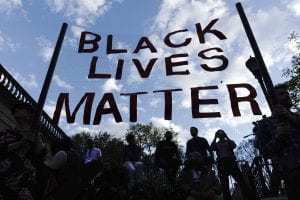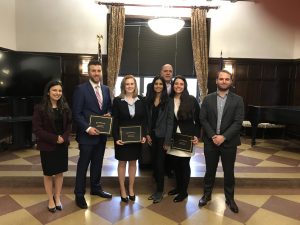The Pace Law Review
The Pace Law Review at the Elisabeth Haub School of Law at Pace University invites submissions for an interdisciplinary conference on the theme of “Game-changing Reforms in the NYS Criminal Justice System and How to Implement Them” to be held on March 20, 2020 at the NYS Judicial Institute on the campus of the law school.
In the last few years, culminating in the last legislative session, the New York State Legislature, the New York State courts, as well as the government of New York City, have enacted a number of far reaching reforms in criminal procedure and related criminal justice issues. These changes include (but are not limited to) the following: raising the age of criminal responsibility to 18 years; comprehensive bail reform; discovery reform; major changes in the speedy trial statute; the anticipated closing of the Rikers Island detention and correctional facilities; significant changes in the imposition of solitary confinement of state prisoners; the expansion of the use of desk appearance tickets (and the consequent reduction of the number of custodial overnight detentions); expansion of the use of video-recorded police interrogations; expanded use of police body cameras in NYC; proliferation of conviction integrity programs in New York State district attorney’s offices; creation of a Prosecutorial Conduct Commission; and the large increase in funding of public defender offices statewide as part of the Hurrell-Harring case settlement. Each of these reforms deserve considered analysis and debate.
This symposium will provide a forum for policymakers, jurists, academics, criminal law practitioners (on both the prosecution and defense side), students and concerned citizens to engage in a thorough discussion of criminal justice reform. These changes share some common themes—an overall trend towards decarceration, increased use of modern technology in street policing, and increased emphasis on the prosecutorial obligation to share information, accelerate the process, avoid misconduct and prevent or correct wrongful convictions.
These changes in New York State reflect national trends in favor of bail and discovery reform, decarceration, and increased concern about wrongful convictions. They also reflect changes in the modern prosecutor’s role and a 21st century model of organized policing. Fixing a close gaze on New York and both its upstate and downstate counties, will provide insight for our national discussion about how we should create and maintain a just criminal process.
New York is one of the largest states in the nation and has an enormous criminal justice system. Major changes in the law like those listed above will have significant effects in other states as well. The far reaching impact of these reforms might include changes in policy, distribution of resources, rethinking what we mean by fairness and due process in criminal matters, and the proper balance between social control and individual liberty—all are implicated in these reforms. Our federal system contemplates the various states as “laboratories” of justice. With these reforms, New York once again is coming to the forefront in that role. A Pace Law Review symposium issue containing excellent and insightful scholarship on matters of criminal justice policy, procedure, practice and jurisprudence would be a valuable resource both locally and nationally.
The Pace Law Review and the Pace Criminal Justice Institute invite you to be a part of that discussion.
We welcome full-length traditional law review articles with a maximum of 65 pages, as well as shorter essays and commentaries with a minimum of 10 pages. Authors will be selected based on brief abstracts of their articles, essays or commentaries. We are looking for different perspectives on the goals and challenges of implementing the historic criminal justice reforms throughout New York State.
To submit, please send:
- Your name, title and professional affiliation
- Your curriculum vitae/resume
- Your contact details, including phone number and email address
- A two-three page abstract summarizing your article or essay and indicating what your expected page length will be.
Please submit your abstract for consideration to: Managing Editor Mellis Bakir at: mbakir@law.pace.edu.
Submission Deadlines
Abstract Deadline: November 25, 2019
Selection Notification Date: December 13, 2019
Article/Essay Deadline: February 28, 2020
If you have any questions about this call for papers, please contact Mellis Bakir at: mbakir@law.pace.edu or Carol Barry (Director of the Pace Criminal Justice Institute) at: cbarry@law.pace.edu.


